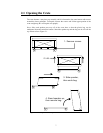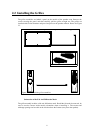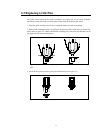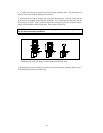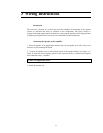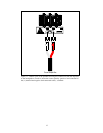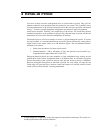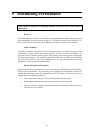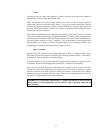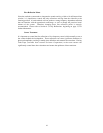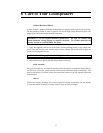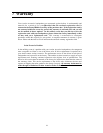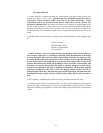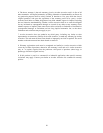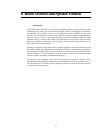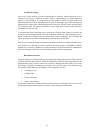
15
Toe-In
Adjusting the toe-in angle of the speakers is useful in tailoring the sound to best match the
characteristics of your system and listening room.
When the speakers are facing straight forward, they tend to create a large, expansive
sound-stage, painted with broad brush strokes. As they are rotated toward the listening
position, the image becomes more compact, with increased focus, creating a greater sense of
intimacy. Pointing the speakers inward is also helpful in situations where strong reflections
from the side walls are a problem.
Start with the loudspeakers facing straight forward, and play either a mono source, or a stereo
source with a distinct center image, through both channels. Carefully rotate the loudspeakers
inward in small increments to bring the image in precise center focus (small adjustments can
be made with the speaker on Apex™ couplers). Toe-in adjustment is rather delicate, and
experimentation is necessary to achieve the proper angle for your listening situation. The
optimum angle is usually between three and ten degrees inward.
Apex™ Couplers
Supplied with your Avalon Acoustics loudspeakers are six Apex™ couplers, used to couple
the speakers to the floor, thereby minimizing time-smearing resonance effects. The result is
an increase in focus and solidity of the sonic images.
On hardwood floors, you may protect the floor from the pointed spike using a large coin, such
as a quarter. However, the coupling effect of the Apex™ couplers will be reduced.
Once you have located the proper position and toe-in angle for your Avalon Acoustics
loudspeakers, place the couplers under the speaker bases. It is easiest to install the couplers
with the assistance of a friend. Lean the speaker forward first, and position two couplers
pointing downward, one under each rear corner. Then lean the speaker backward and place
one Apex™ coupler under the front center of the base.
IMPORTANT: It is imperative that the Apex™ Couplers are utilized, in order to insure
that the bottoms of the loudspeakers are not blocked. This is especially important on
thick carpeting.



